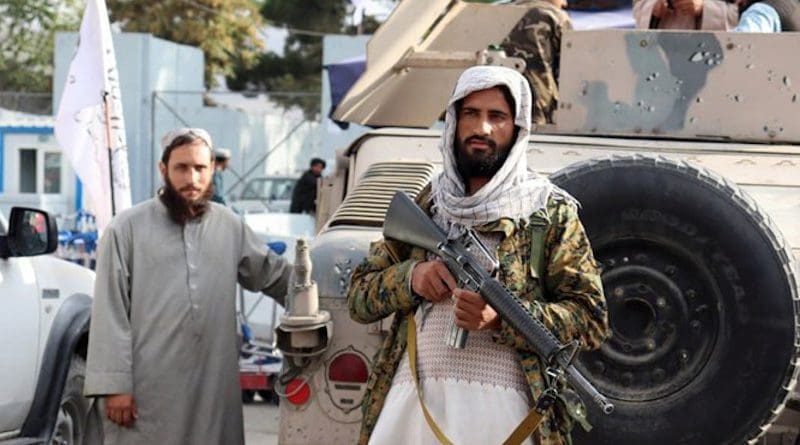US And Afghanistan Engagement And Its Impact – OpEd
By Dr. Sahibzada Muhammad Usman
The United States’ engagement in Afghanistan, a pivotal chapter in modern geopolitical history, stretches back several decades, with layers of complexity and an array of geopolitical and socio-economic ramifications.
Afghanistan’s strategic location has made it a center of geopolitical interest and contestation for centuries, with the most recent engagements rooted in the Cold War. The Soviet–Afghan War, which began after the Soviets under the command of Leonid Brezhnev intervened in Afghanistan’s affairs, was a major turning point. The U.S. covertly backed the Afghan Mujahideen fighting against the Soviets, marking the beginning of its deepening involvement in the region.
Following the 9/11 attacks in 2001, the U.S. pursued the Taliban and Al-Qaeda in Afghanistan, initiating a prolonged military and socio-political involvement. The U.S., in collaboration with NATO, implemented various strategies and established funding streams, such as the NATO-run Afghan National Army (ANA) Trust Fund, to support Afghanistan’s security forces and the fledgling democracy.
The World Bank provides key statistics that elucidate the socio-economic implications of U.S. engagement in Afghanistan, including data on infrastructural projects, educational initiatives, and public health campaigns. These initiatives, while often overshadowed by the military narrative, played a critical role in shaping Afghanistan’s modern socio-economic landscape.
In recent years, the focus has shifted from warfare to diplomacy. President Biden’s remarks on the end of the war in Afghanistan on August 31, 2021 highlighted a shift in U.S. foreign policy, where he discussed the challenges faced and the decision-making that led to the eventual withdrawal of U.S. troops from Afghanistan. Education, particularly for women and girls, was a key focus. Schools were built, and programs were initiated to train teachers, distribute educational materials, and provide scholarships for Afghan students to study in the U.S. The exchange wasn’t just academic; cultural programs aimed to bridge the understanding between the two nations, with various initiatives promoting arts, music, and literature.
While the influx of U.S. dollars did stimulate certain sectors of the Afghan economy, it also created a form of dependency. The Afghan government heavily relied on foreign aid to fund its budget. This financial dependency raised concerns about the sustainability of various programs and initiatives once foreign aid reduced or ceased entirely. Afghanistan is the world’s largest producer of opium. The U.S. spent billions trying to curb the opium trade, given its implications for global narcotics trafficking and its funding ties to terrorist networks. Despite eradication efforts and alternate crop programs, challenges persisted, primarily due to the lucrative nature of the poppy crop for Afghan farmers.
The U.S. exit from Afghanistan in 2021 marked an end to its longest war, but the legacy of this engagement is far-reaching. The immediate aftermath witnessed the rapid takeover by the Taliban, raising concerns about the fate of the democratic institutions, human rights achievements, and developmental gains made over two decades. As history unfolds, the long-term impacts of the U.S.’s involvement will be scrutinized, debated, and analyzed, serving as a touchstone for future foreign policy decisions and interventions.
Among the most debated and discussed outcomes of the US intervention is the impact on Afghan women and minority groups. Prior to the U.S. engagement, the Taliban’s oppressive regime had restricted women’s rights, barring them from education, work, and public life. The U.S. intervention, with its emphasis on human rights, saw the upliftment of women in various sectors. Women started participating in the workforce, political processes, and the education sector saw a significant rise in girl students. However, the rapid return of the Taliban in 2021 raised grave concerns about the continuity of these freedoms.
Apart from the political and socio-economic ramifications, the prolonged war has had a significant environmental impact. Deforestation, water scarcity, and damage to agricultural lands are among the prominent challenges. Additionally, Afghanistan’s rich cultural heritage, with ancient monuments and artifacts, also suffered. Some sites were damaged during combat, while others, like the Bamiyan Buddhas, were intentionally destroyed by the Taliban in a bid to erase pre-Islamic history.
The Afghan diaspora, which started during the Soviet-Afghan war, intensified over the past two decades. The U.S. and its allies have resettled thousands of Afghans, especially those who assisted foreign troops and are at significant risk under the Taliban regime. The refugee crisis puts pressure on neighboring countries, and resettlement initiatives in the West have been both applauded for their humanitarian stance and critiqued for not being enough.
With the U.S. withdrawal, the geopolitical dynamics surrounding Afghanistan have shifted. Regional players like China, Russia, and Iran will likely play a more substantial role in the country’s future. The challenge for the global community is navigating these dynamics while ensuring that Afghanistan doesn’t become a breeding ground for extremism or revert to the dark days of the late 1990s.
The U.S. engagement in Afghanistan, spanning over two decades, is a testament to the complexities of international interventions. While there were undeniable gains in areas like women’s rights, education, and infrastructure, the long-term sustainability of these achievements remains uncertain. The rapid return of the Taliban post-withdrawal underscores the challenges in nation-building and the ephemeral nature of foreign-imposed change. The story of Afghanistan serves as a poignant reminder of the intertwined fates of nations and the profound effects that political decisions can have on ordinary lives, spanning across generations.

